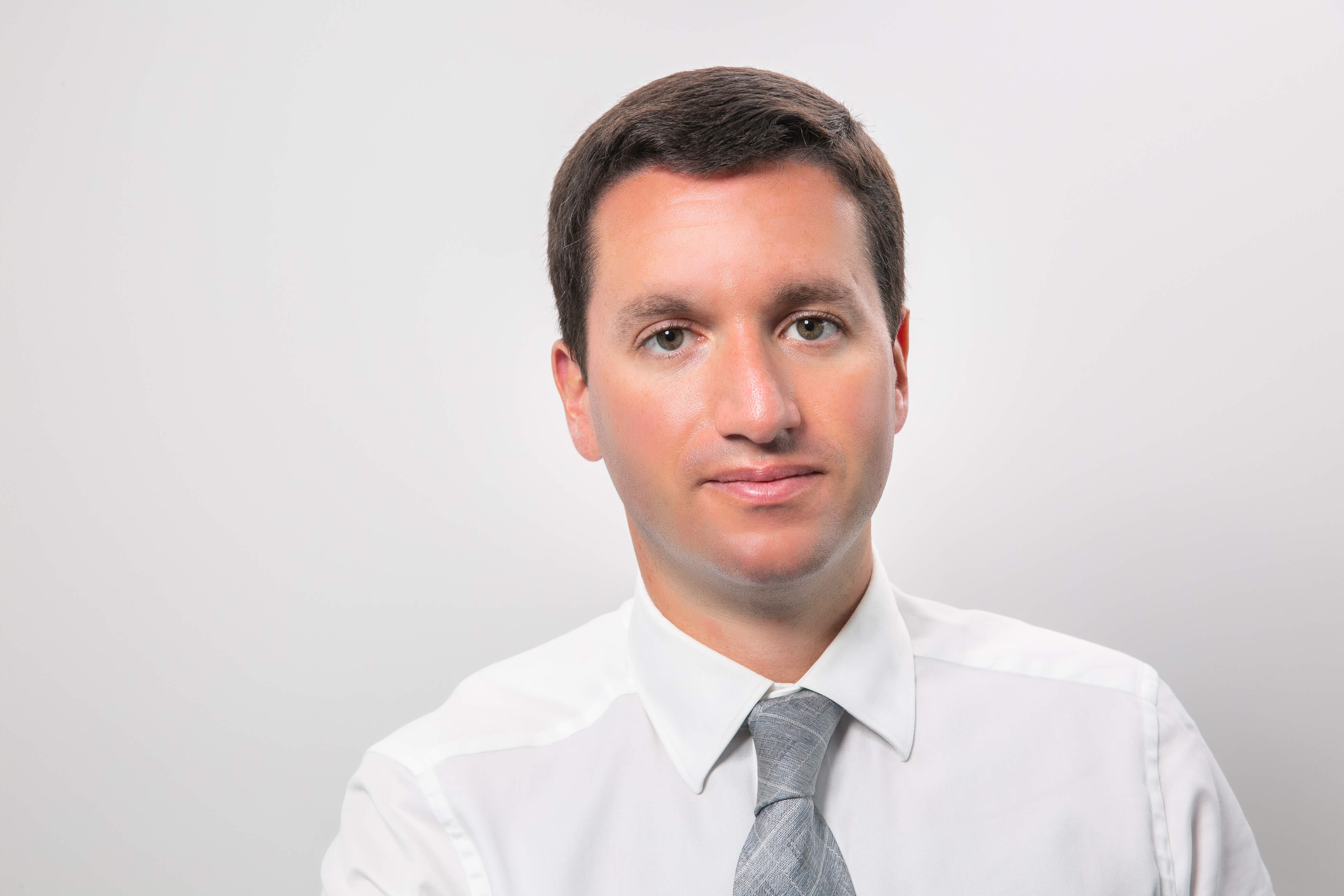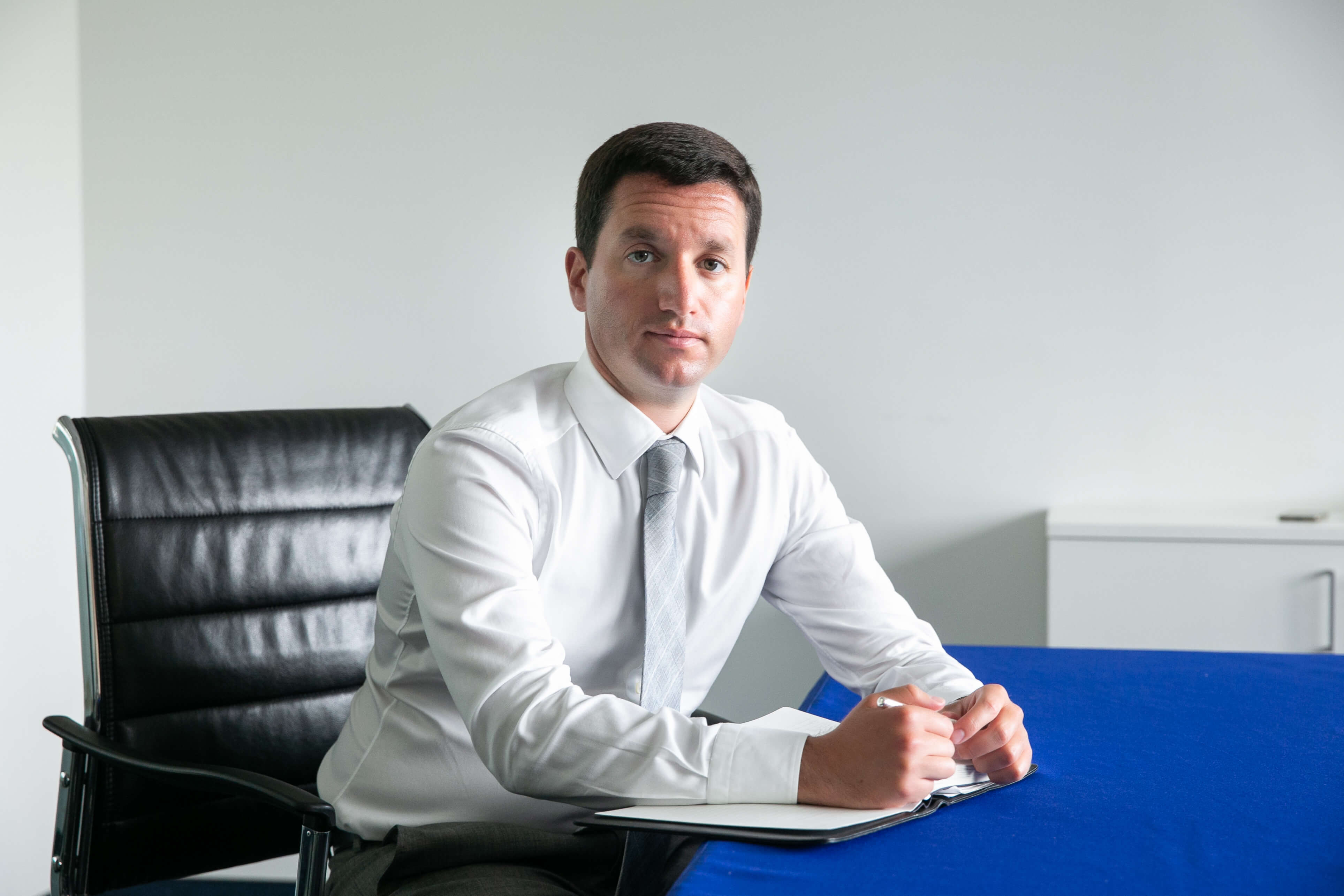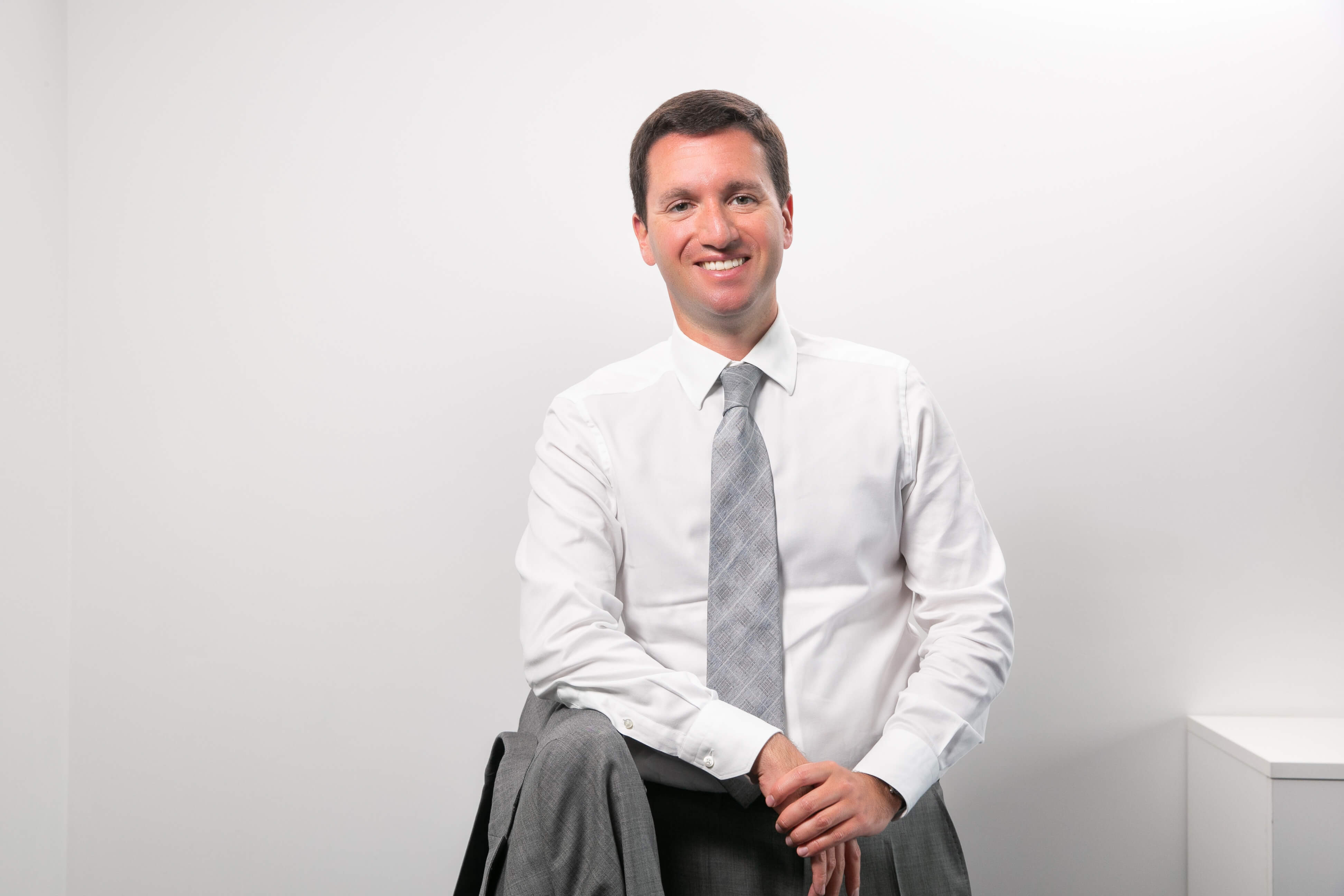'Access to double-degree track has played a big role in my career'

A member of ICEF class of 2006, Anatoly Braverman has achieved a significant track record in petroleum transactions and has witnessed the Russian economy receive increased investment as one of the first members of RDIF team since 2011. How does the Russian economy benefit from international degree programmes? How does investing in antiviral drugs work and how has it been used by RDIF to develop Sputnik 5 vaccine? Anatoly Braverman answers these and many other questions in his interview with Success Builder.
Economics seems to have a firm place in your family?
True. My father is a full professor of economics, which certainly did play a role in my choice of a career and university. My mother supported my choice, too. I started studying economics in high school, but it wasn’t until I made my mind to enroll in HSE that I started to explore it in full detail. I developed a genuine interest in economics, I must say. By that time, HSE had earned itself a solid reputation. Applicants to its programmes knew exactly what to expect and what they wanted to do professionally: what HSE offered was international education and promising opportunities. I first joined the Open Days at HSE and ICEF in grade 9. Back then, the recruitment campaigns were run by Lev Lyubimov, a man of great personality who helped me shape my vision of my future and instilled in me the interest in economics as a career.
Back then, HSE had a reputation as a school for a cohort of selected learners. Why did you think it would be a good fit for you?
It was the early 2000s. The days of educational experiments had long gone. HSE had in its portfolio some amazing alumni and prominent faculties. Its novel approach to education did pay off eventually. As to ICEF, it was an emerging division of HSE with a promising programme – a uniquely designed programme that could be found nowhere else in Russia.
What ICEF offered was an international education with a double-degree track with the University of London, an advantage that had earned it an impressive number of gifted applicants. It was the double-degree track, along with highly competent teaching staff and their being actually involved in the economy of Russia, that made me opt for ICEF bachelor’s programme.
You mentioned promising opportunities. How did they help you at the start of your career?
I started doing internships as early as my second year. One of my internship providers was LUKOIL, where I joined the investment analysis team and was working hard on those entry-level assignments that required me, a beginner, to move from theory to practice. Taken together, the fundamental knowledge students receive at HSE and ICEF has proven very helpful on my way to hands-on experience. I achieve an excellent performance quite early.

A little more than three years after I joined LUKOIL, I received a job offer from Gazprom Neft. They were starting a division for asset acquisition in petroleum refining, and my track record in M&A transactions at LUKOIL was exactly the asset that helped me win the job. I made some serious career progress at Gazprom-Neft and have learned a lot on the management side by running both individual units and entire divisions.
Which qualities as an HSE graduate proved particularly useful at the start of your career?
One quality I see as essential for good performance at HSE, as at any other university, is being prepared to work hard. This is a quality that will get you through at any stage in your career.
Perseverance is what ICEF cultivates in the first place: with dual control system, never-ending deadlines and impressive scope of challenging assignments, earning a double degree takes extra work
It takes self-management, a skill we first receive in our student years that helps us organize our lives. ICEF provides its students with a wider perspective by exposing them to a truly international environment where they can communicate with lecturers from the London School of Economics, Oxford and other world-famous schools. With its long-standing contact with the business community and the alumni network, ICEF has access to the best international practices that makes it possible for students to enjoy employment support and have a better understanding of the options before them.
One important benefit we received from the international setting of the programme is systems thinking. It made us fully prepared for studies abroad and multicultural working environment. I often remember one of ICEF faculty members refer to learning to learn as the most important skill ever. It appeared to have been crucial in all career success stories typical of ICEF graduates.
Was it hard for you to re-orient towards the energy sector and, particularly, the oil industry, which is your current professional domain?
No matter the specialization students may choose for themselves, there is always a core curriculum to be studied. My specialization is management, which used to be a separate major at ICEF, but courses such as Statistics, Mathematical Analysis, Micro- and Macroeconomics continued to be delivered on a par with Management. And there has always been a choice of optional courses to adjust the learning track based on a student’s interest. Given the purpose of the baccalaureate level, which is to equip learners with a fairly broad scope of knowledge, it makes you eligible for nearly every field that requires advanced knowledge of financial analysis.
About Anatoly Braverman:
He earned his bachelor’s from ICEF in 2006. He was in charge of Asset Development and Acquisition at Gazprom Neft, one of the largest oil producers in Russia. For more than three years Anatoly worked at LUKOIL, where he participated in a number of transactions totaling more than $2.5bln. Anatoly began his career as Senior Vice President at the Russian Direct Investment Fund (RDIF) at the Fund’s launch in 2011, and was appointed First Deputy CEO in 2015. Anatoly is a recipient of a medal of the Order "For Merit to the Fatherland, class II, awarded to him by Decree of the Russian President for outstanding contribution to international investment projects and socio-economic development of the Russian Federation. In November 2020, Anatoly assumed the position of a managing director at the Russian Venture Company (RVC), while retaining his position as RDIF Senior Vice President.
My path into petroleum industry was through LUKOIL Investment Analysis Department, whose core function encompasses strategic development and financial analysis – exactly the area that allowed me to apply my highly specialized skills. By tackling those initial assignments, financial ones in my case, I learned the ins and outs of the industry. My first assignments dealt with feasibility of acquiring gas stations. Later, in another division, I participated in a number of oil refinery acquisitions abroad. Having to explore the ins and outs of the subject is what has to be faced by all fresh graduates when they enter the investment analysis-related jobs, I think.
After eighteen months in that department I and my supervisor joined the dedicated oil refining division. The job required the knowledge of the engineering side of oil refining, so I took petroleum courses at the University of Oil and Gas. They weren’t enough, of course, to attain the level of my colleagues, who all came from petroleum background, but they did fill me in with what I needed to be able to work with assets, conduct transactions, and communicate with counterparties.
Did you ever consider joining a government entity where your experience could be used for the benefit of national economy? A source told us that economics qualifications are what the governmental agencies need in the first place.
Graduates of HSE are hardly to run the risk of staying jobless. Their high qualifications make them eligible for positions also in the governmental agencies. My current employer – the sovereign wealth fund of the Russian Federation – is working precisely to boost the Russian economy. I can see from our interaction with the ministries and government departments the increase in the managerial personnel competence level. Holders of degrees in economics land jobs not only at the Ministry of Economic Development or the Ministry of Finance but also at the Ministries for Energy and Transport, among other government entities, where economics education is not a core requirement.
What are the peculiarities of M&A as a career?
Fifteen years ago, when I started a full-time career in M&A industry, there were two major acquisitions I was personally involved in at LUKOIL that I remember best. They were two refineries, and the main task before us was to integrate them into the company upon acquisition. I mean the acquisition itself and preparations for it were just a stage in the process.

That has been a very useful experience, especially when I joined RDIF, where acquisition is just the starting point of asset management. Over the ten years of its operation under the leadership of Kirill Dmitriev, RDIF has entered into a multitude of transactions. The thing to be considered next after an asset is acquired is how it can be developed and maintained and what exit options can there be that could be satisfying to the shareholder, which in our case is the state, in terms of revenues.
What skills or qualities have proved critical for your career advancement, especially for starting a management job?
Negotiation skills, I think. It may not be easy for students to understand what they are about. The understanding comes with experience, after witnessing the communication process in different conditions and under different circumstances.
Every negotiation is a delicate, individualized process
That aside, there are four qualities I would name as crucial for career advancement. The first is attention to detail. It is essential to stay focused as your tasks increase and become more complex. The attention to detail is, in turn, inherently associated with multitasking – something that I am still learning from our director general: he has the aptitude for keeping all maters pertinent to a transaction or a project in his mind despite his busy schedule.
The second quality is the ability to organize processes at all levels. It, too, is closely connected with attention to detail. For a manager to perform effectively, he or she must stay aware of what’s going on in every line of work they are responsible for. The third thing is hard-working nature, and the fourth is systems thinking, especially considering that your scope of tasks is bound to increase proportionally to the level of responsibility. A good organizer is someone who knows how to turn chaos into a manageable system relying on concentration and previous experience.
How did you get into RDIF? How is your job role conducive to development within RDIF itself?
The offer came from Kirill Dmitriev in the fall of 2011. I was one of the first to join the team, a fact that I take pride in because I witnessed RDIF being started from scratch and was contributing to its formation. I started as a senior vice president and was promoted to First Deputy CEO, my current position.
RDIF didn’t even have an office when I joined it, but Kirill turned it into a world-famous sovereign fund of the Russian Federation, a tool for dealing with the global tasks and attracting investment in the Russian economy. Now, owing to our recent major anti-COVID project which involved development, international promotion and scaling up of Sputnik 5 vaccine, RDIF reaches out to every individual. Its agenda now includes also social issues of a global nature.
How have the investment trends evolved over this period of time? And why do investors target mostly technology?
A change in trends is experienced by any market. Even though technology is, indeed, seen by many public and private investors as a profitable industry, this does not mean underinvestment in other sectors. In RDIF investment portfolio, technology accounts for some 20% of the target volume. We continue to actively invest in industries and infrastructures that have been our traditional targets for quite a number of years.
How did the pandemic change your investment policy?
I am proud to tell you that RDIF was one of the first institutions to recognize the risk and scale of the coronavirus – largely thanks to its long-established contact with China and the Middle East. It didn’t take long our colleagues there to communicate the scale of the threat. We reacted by raising the so-called ‘antiviral’ investments and channeling them into what has become the world’s fastest and most accurate coronavirus diagnostic test.
Then, RDIF funded the development and mass production of Russia’s first and world’s second anti-coronavirus drug Avifavir, which was followed by one more project, probably the largest in this line of work – development, international promotion and local production of Sputnik 5, the first vaccine to be officially registered globally as a COVID-19 vaccine.

And we also managed to support quite a number of our portfolio companies, those that suffered the consequences of the pandemic most. Many of them have even experienced a cardinal increase in their performance. One example is ivi. As an investment target, ivi has proved the right choice because of social distancing. It made watching movies at home a highly popular activity.
How does your role in the Russian Venture Company differ from that in RDIF?
At the end of 2020, the Russian government resolved to reform its development institutions. It was decided to place RVC under the management of RDIF. I was asked to lead the integration process by Kirill Dmitriev and am still concurrently holding two posts – First Deputy Director General at RDIF and Director General at RVC.
RVC will be functioning mostly as a fund of funds, while RDIF will focus on individual projects. The integration process is still ongoing, with decisions to be made as to its technical and legal side, portfolio, emerging opportunities, organizational structure and internal functions.
In promoting the RVC, we’ll be making use of the practices that have proven best for RDIF. One of them is co-investing, first pioneered by RDIF not only in Russia but also globally. Co-investing involves joint investment and engagement in a partner’s project. As a highly effective model that makes it possible to have different experts consider a project or transaction, co-investing is currently practiced in many countries including CIS and Europe.
When it comes to managing the RVC funds, co-investing will definitely remain our core focus. We expect the RVC co-investment funds to be channeled into businesses at an earlier stage compared to RDIF. And we see it as a way to attract more partners in Russia and abroad to foster Russia’s economic growth.
Do you have many graduates of HSE and ICEF at RDIF? What qualifications does investment industry seek in candidates?
We have quite many graduates of HSE and, particularly, ICEF at RDIF. They are one of our most valuable assets and have long track-record in the industry. We normally hire people with previous experience in investment banking or private equity funds, depending on the position they apply. It is a requirement that candidates have adequate level of skill in investment analysis, deal structuring, and preparation of project materials.
The company operates a system of training and workshops to support its employees. Training options are offered also based on the employee’s need to receive an in-depth knowledge of the industry his or her portfolio company is dealing in or transaction pertains to.
Given that we and our partners have over 90% share on Russia’s direct investment market, RDIF provides its employees with a unique body of experience
A great number of our portfolio companies engage in the activities requiring us to explore them in close detail. And some of our core industries such as medicine are truly big. A scope of tasks and opportunities as wide as ours can hardly be found anywhere else in Russia.
International degrees holders who choose to work for Russian economic institutions, how do they benefit from their international education?
Many ICEF graduates are faced with the choice of building their careers either in Russia or abroad. The very fact of having this choice is a huge positive. There are many success stories of HSE graduates, including members of my class, building impressive careers abroad, and I am pleased to see more and more HSE graduates go into the many different industries that we are dealing with.
In my case, access to the double-degree track has played a big role in my career. RDIF has partners across the globe, so the skills and knowledge of how education systems, business thinking, business practices and business communication work in overseas countries come in very handy. Not to mention business English proficiency.
What makes RDIF a special organization is that it uses foreign investment to promote the economic growth in Russia, which in itself is a challenging task, considering that your stakeholder (government) and your co-investors abroad need to be offered lucrative returns.
At RDIF, we maintain constant communication with sovereign funds in Saudi Arabia, United Arab Emirates, China, and with partners in Japan and Europe. This actually means that our team has the responsibility for the course in the relationship with the entire world while working for the benefit of national economy. It gives us a great sense of pride to know that apart from representing Russia on the global level, we do contribute to the Russian economy. After all, the decision to move abroad for work is a personal choice. I opted to continue my career in Russia, and I am happy to be a part of RDIF team.